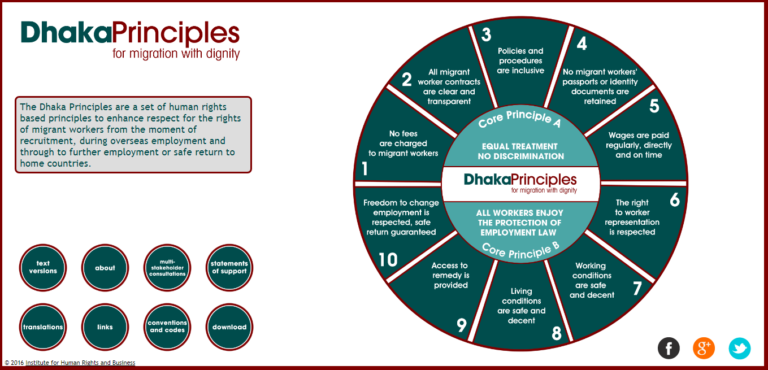The Dhaka Principles for Migration with Dignity are a set of human rights based principles to enhance respect for the rights of migrant workers from the moment of recruitment, during overseas employment and through to further employment or safe return to home countries. They are intended for use by all industry sectors and in any country where workers migrate either inwards or outwards.
They are based on the UN Guiding Principles on Business and Human Rights and international labour and human rights standards. The Dhaka Principles provide a roadmap that traces the worker from home to place of employment and back again and provides key principles that employers and migrant recruiters should respect at each stage in the process to ensure migration with dignity.
The Dhaka Principles were officially launched on International Migrants Day, 18th December 2012.
The Dhaka Principles were developed by the Institute for Human Rights and Business in consultation with a range of stakeholders from business, government, trade unions and civil society. The first draft was shared publicly at a migration roundtable in Dhaka, Bangladesh, June 2011. IHRB continues to manage and promote the Dhaka Principles globally.

